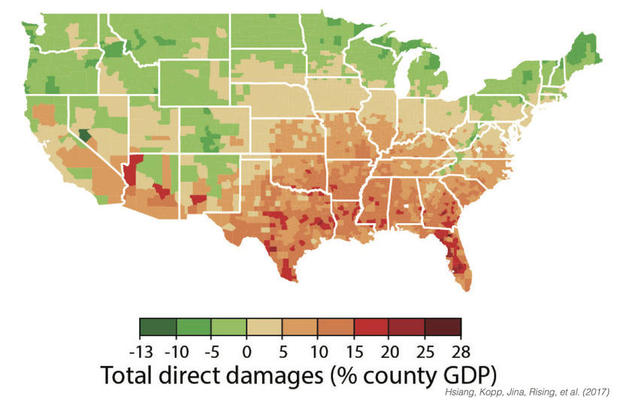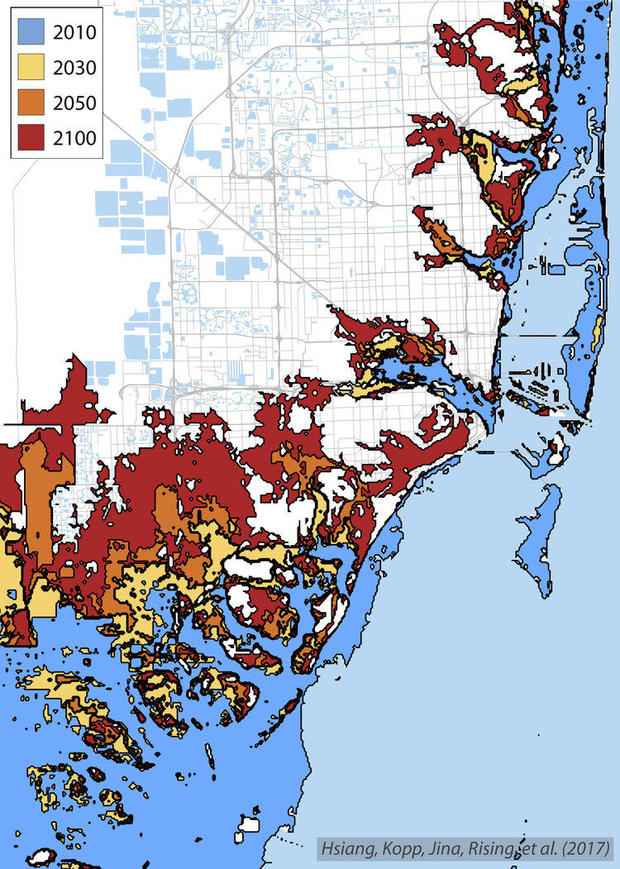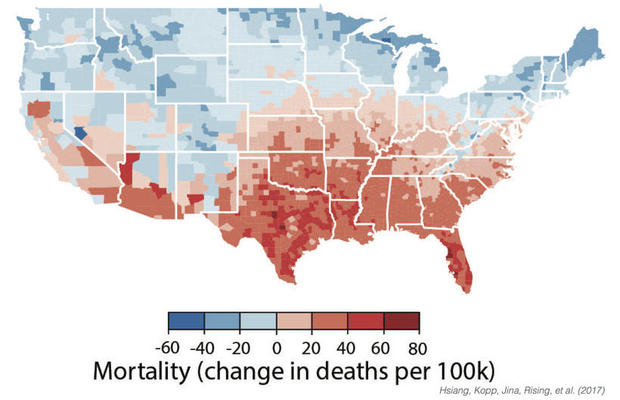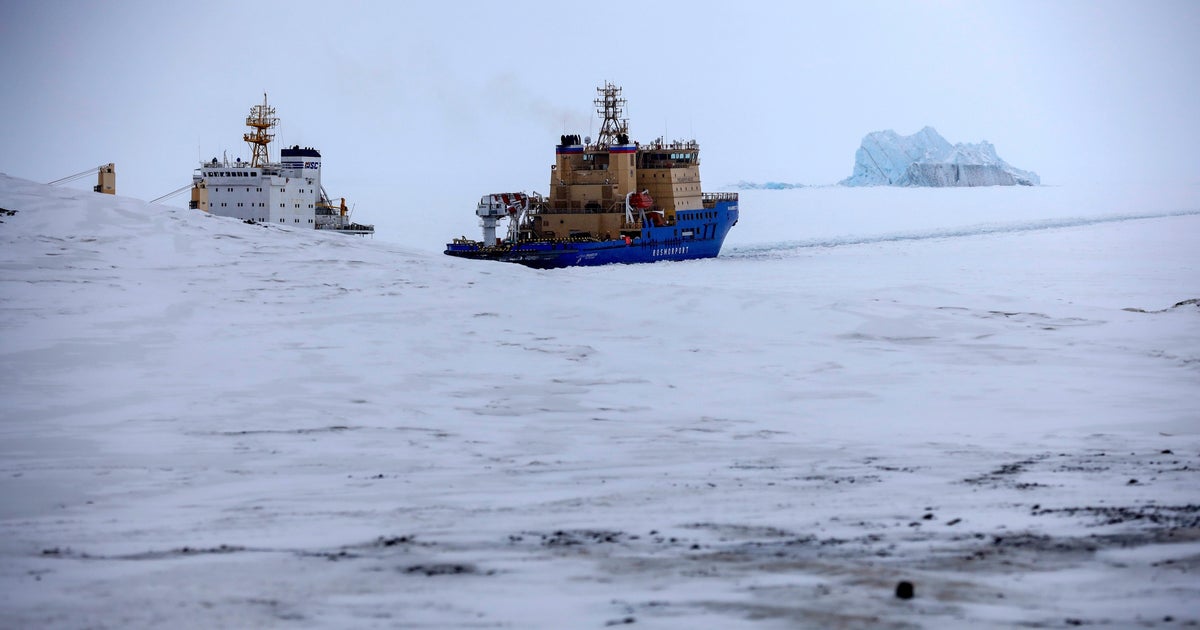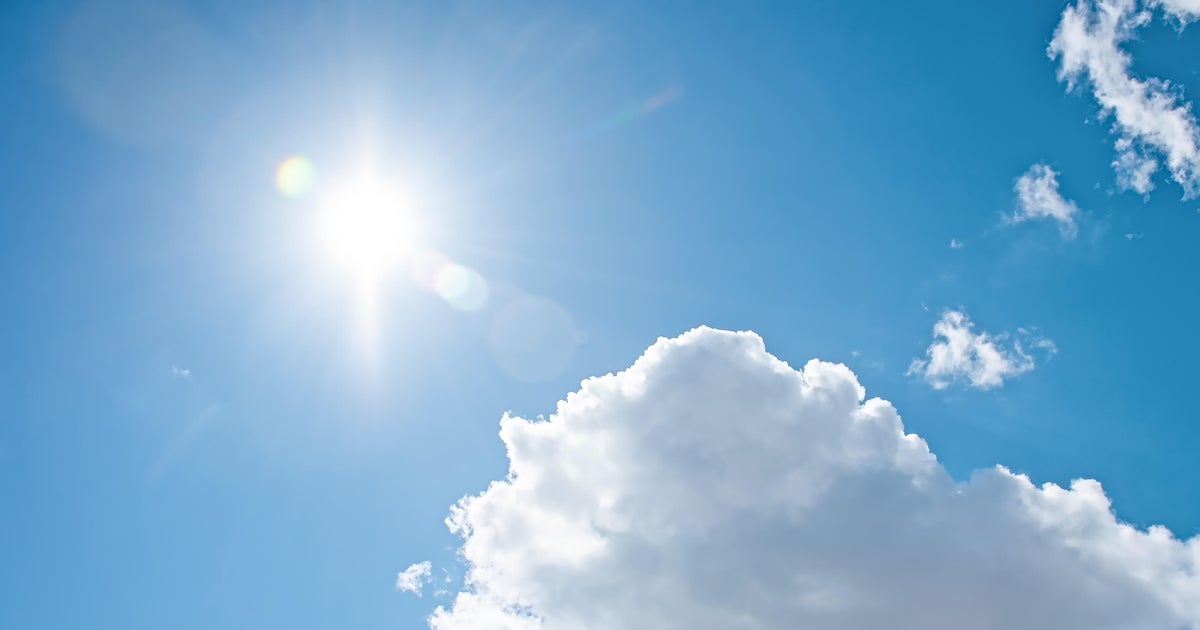Here's where climate change will hit the U.S. the hardest
Communities across the U.S. should brace themselves for severe economic losses if climate change continues undeterred, according to a new analysis.
Every jump of 1 degree Celsius in temperature will cost the U.S. about 1.2 percent in gross domestic product, researchers said in a study that appears Friday in the journal Science. They also delivered a grim message: expect America's income inequality to get worse as the planet warms.
The researchers crunched numbers on how climate change will continue to impact the economy and society in a wide range of ways. They projected the impact on everything from agriculture yields and the labor supply to mortality rates and violent crime. They identified how different communities' energy expenditures will change, and mapped out the locations likely to take the greatest hit from coastal damage.
Most importantly, they broke their analysis down on a granular, county-by-county level, producing a vivid picture of which U.S. communities stand to lose the most as global warming accelerates.
In terms of overall economic losses, southern and midwestern communities are at the highest risk, in some extreme cases losing 20 percent of their local GDP by the end of the century:
Some northern and western communities may see slight economic gains over that time period, shifting the balance of economic power in the U.S, the researchers said. These communities may in fact see a boost in agriculture, thanks to milder northern winters, lower energy expenditure on home heating, and other factors. Still, these gains aren't enough to compensate for the negative trend nationwide.
Counties along the Atlantic coast are expected to suffer major losses as hurricanes intensify and sea levels rise, redrawing the maps of coastal areas.
The U.S. appears particularly vulnerable to sea level rise in the next century, according to research from the National Oceanic and Atmospheric Association. The latest study mapped out the areas of several major coastal cities, like Miami, seen here, which are most likely to be inundated by floods under median sea level rise in the coming decades.
Climate change and income inequality
According to the researchers, climate change is poised to disproportionately affect areas that already suffer from poverty, exacerbating America's economic inequality. By the late 21st century, the poorest third of U.S. counties are expected to experience losses between 2 and 20 percent of county income, according to the study.
"We've shown which U.S. regional economies are particularly vulnerable, which will help policymakers," co-author Solomon Hsiang, of the University of California, Berkeley, and the National Bureau of Economic Research, said in a statement. "If we are going to adapt, we need to know where to focus."
The data analysis comes from the Climate Impact Lab, a consortium of climate researchers from UC Berkeley, Rutgers, University of Chicago, and other institutions. The group also released an interactive tool for the public to engage with the data and explore the impact on different communities. To make their projections, the researchers assumed a "business as usual" framework for the next few decades — meaning, they assumed the U.S. would continue its heavy reliance on fossil fuels.
The recent shift in federal policy supports that assumption. President Trump has promised to end the supposed "war on coal" and pulled out of the Paris Agreement, which committed the U.S. and more than 190 other nations to reducing carbon emissions. Under EPA Administrator Scott Pruitt, the Environmental Protection Agency has moved into a new chapter of deregulation on industry.
Climate change and health
Continued climate change, by stretching natural resources to the breaking point and normalizing extreme weather events, is also expected to cause a worsening of physical and mental health problems.
Previous medical research has linked climate change to an increase in infectious diseases and heart and lung conditions associated with air pollution and wildfires.
The new study projects an increase in mortality rates resulting from climate change in southern and midwestern states and much of California over the rest of this century.
In 2013, researchers from Princeton University and the University of California-Berkeley found that even slight spikes in temperature and precipitation have increased the risk of personal violence and social upheaval throughout human history.
Extreme weather events are also known to trigger mental health problems including post-traumatic stress disorder, anxiety, depression and substance abuse.
